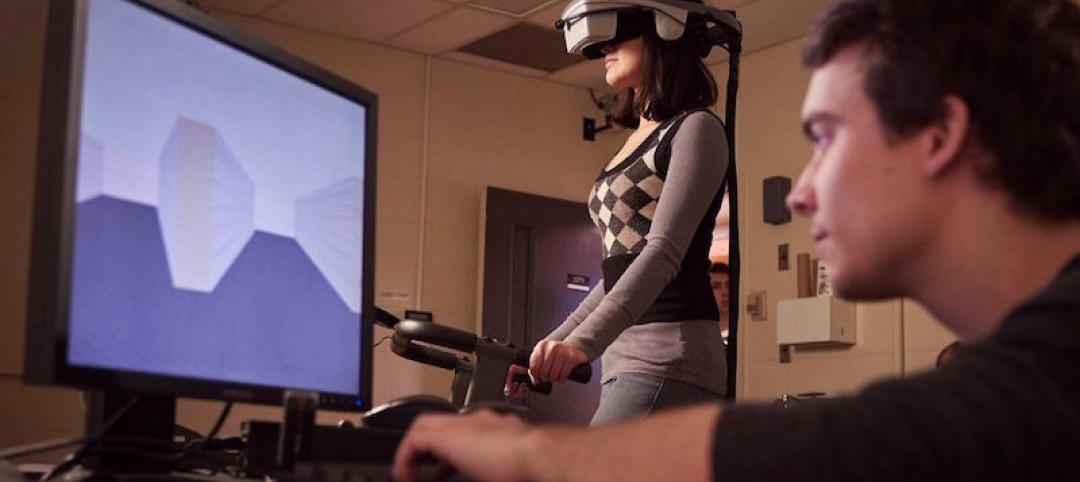The architecture programs at Parsons The New School for Design and Clemson University have been selected as 2014 NCARB Award recipients for developing innovative curricula that merge practice and education.
The National Council of Architectural Registration Boards (NCARB) announced the recipients at the Association of Collegiate Schools of Architecture (ACSA) Administrators Conference.
The NCARB Award supports initiatives at architectural schools that will have a long-term impact on students, faculty, and curriculum. It is designed to help schools implement new programs that bridge the gap between practice and education in a classroom, seminar, or studio setting.
“The award honors innovative ways for weaving practice and academy together to address real-world architecture challenges,” said NCARB CEO Michael J. Armstrong. “The winning proposals for 2014 explore new paradigms of practice and move students from the theoretical to applied practices working with licensed practitioners.”
2014 NCARB Award Recipients
Program: Clemson University, School of Architecture—Clemson, S.C.
Proposal: “Graduate Program in Architecture + Health”
Total Award: $30,000
The mission of the project is to advance health care facility design through collaboration among architects, academia and members of the healthcare industry. The primary outcome will be to expose a cohort of architecture and health (A+H) Master of Architecture students—through three integrated courses within the A+H Curriculum—to the challenges of designing health care settings that support the delivery of high quality, cost effective, culturally relevant health care for medically under-served populations.
“This project’s social capacity is far-reaching,” said Wendy Ornelas, FAIA, associate dean and professor at Kansas State University’s College of Architecture, Planning & Design, and the chair of the 2014 NCARB Award Jury. “It creates a road map for healthcare but is also a framework that is portable across all project types."
Program: Parsons The New School for Design, School of Constructed Environments—New York
Proposal: “Student-Practitioner Partnerships in Building Performance Evaluation”
Total Award: $20,232
While there is increased emphasis on sustainability, instruction on performance measurement is lacking. The proposal addresses a new and critical opportunity for architecture students to improve the environmental performance of buildings through measurement. The project involves purchasing new tools to enable students, during seven-week assignments, to work with practitioners to evaluate the real-world energy performance of buildings. Equipment purchased with the Award includes environmental meters for the measurement of temperature, humidity, air velocity, light level, sound pressure, carbon dioxide, carbon monoxide, and other performance factors.
“Many of the buildings are LEED or net-zero buildings, and this program will provide us with a cadre of information and data on whether or not these buildings are doing what they are supposed to be doing,” Ornelas said.
The 2014 NCARB Award Jury rigorously and impartially evaluated proposals against a published set of criteria. The jury comprised architects and emerging professionals who volunteered extensive time and expertise to fulfill their charge. Led by Wendy Ornelas, FAIA, Manhattan, KS, chair of the 2013 NCARB Award Jury, members included: Michael Archer, Assoc. AIA, Brooklyn, NY; Leticia Canon, AIA, MBA, NCARB, LEED AP BD+C, Dallas, TX; John Ehrig, FAIA, LEED AP, Orlando, FL; Linaea Floden, LEED AP BD+C, Tampa, FL; Emily Forquer, NCARB, Afton, IA; and Stephen Schreiber, FAIA, Amherst, MA. (Award Jury members with any connection or potential conflict of interest abstained from voting on that school’s proposal.)
Since 2001, the Council has supported the integration of practice and education by awarding more than $900,000 to schools through the NCARB Prize (2001-2011) and the NCARB Award (2006-present; known as the NCARB Grant until 2012). These funds have reached 60 schools—representing more than a third of all NAAB-accredited degree programs.
Related Stories
Designers | Feb 1, 2017
Netflix design documentary series to feature Bjarke Ingels
Abstract: The Art of Design will delve into the artistic processes of various influential designers.
Architects | Jan 27, 2017
The Enterprise Rose Architectural Fellowship and Lawrence Scarpa, FAIA, honored with the 2017 Collaborative Achievement Award
Lawrence Scarpa, FAIA and the Enterprise Rose Architectural Fellowship receive the 2017 Collaborative Acievement Award.
Architects | Jan 26, 2017
Alan Greenberger, FAIA, honored with the 2017 AIA Thomas Jefferson Award
The award honors significant contributions to public architecture.
Architects | Jan 24, 2017
Politicians use architectural renderings in bid to sell Chicago’s Thompson Center
The renderings are meant to show the potential of the site located in the heart of the Chicago Loop.
Architects | Jan 23, 2017
Why corporate branded environments matter
A branded environment has the potential to create a long-lasting impression for your intended audiences.
Architects | Jan 19, 2017
Harley Ellis Devereaux merges with Deems Lewis McKinley
The combination is expected to bolster HED’s presence in northern California and the K-12 sector.
Architects | Jan 13, 2017
Best in Architecture: 23 projects win AIA 2017 Institute Honor Awards
The Shigeru Ban-designed Aspen Art Museum and the General Motors Design Auditorium by SmithGroupJJR are among the architecture, interior architecture, and urban design projects to win.
Designers | Jan 13, 2017
The mind’s eye: Five thoughts on cognitive neuroscience and designing spaces
Measuring how the human mind responds to buildings could improve design.
Building Materials | Jan 9, 2017
Architects and researchers are developing new techniques for building in space
As setting foot on Mars becomes a more realistic goal, the search for how to best develop Architecture for the Red Planet is heating up.
Architects | Jan 5, 2017
U.S. architects can now earn licenses to practice Down Under
NCARB finalizes reciprocal agreement with Australia and New Zealand.

















